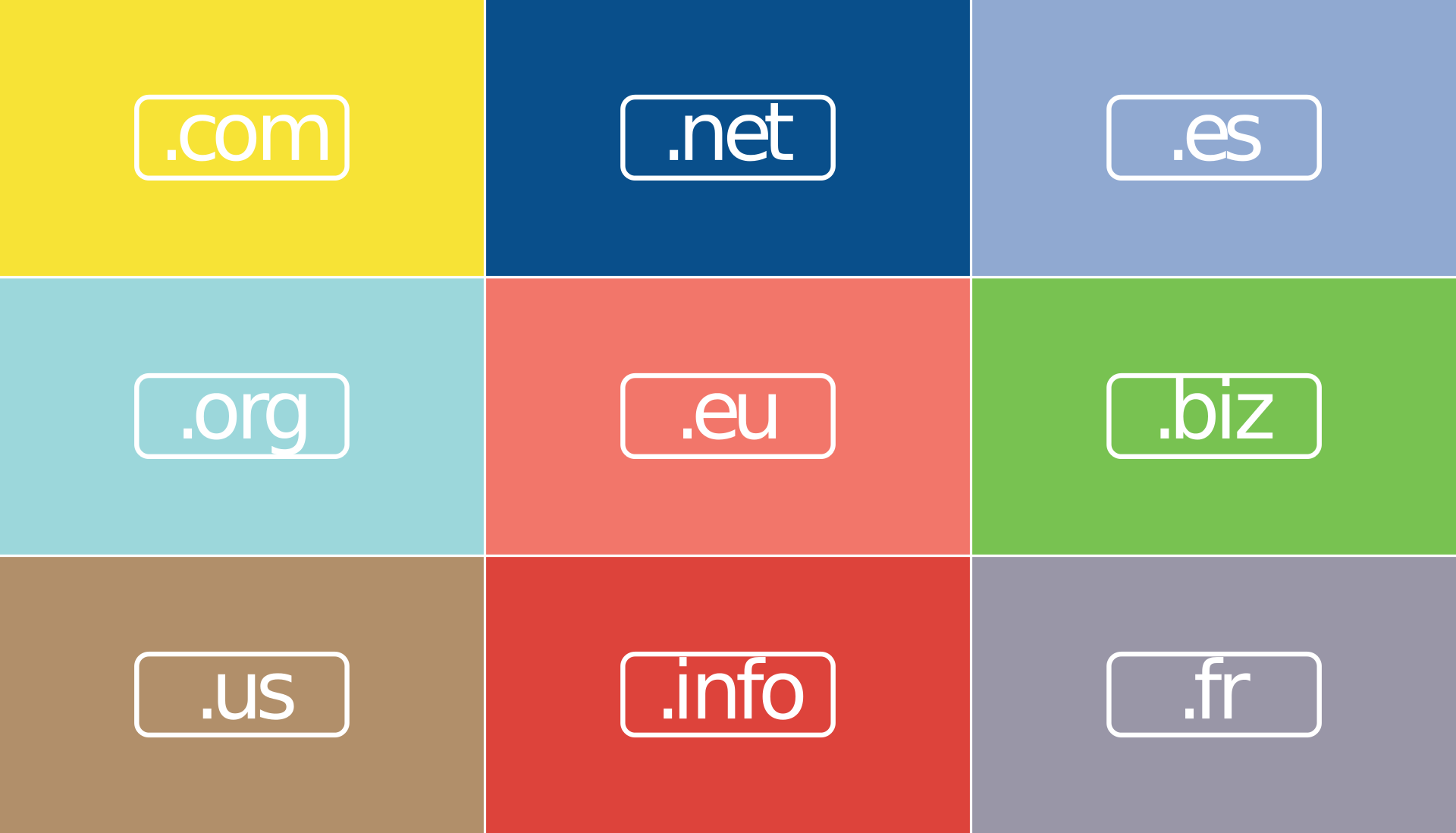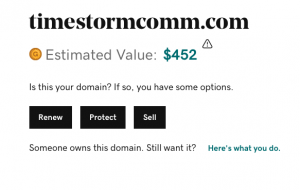
Have you tried to come up with a new website name lately? If you want a popular keyword in your domain name, you might find that it’s taken. The registry you’re using (GoDaddy and many site hosts offer the service) will probably offer an alternative domain extension instead of .com.
Some small businesses took .biz or .us extensions. In recent years, .co and .io have popped up on a lot of new URLs.
Someone Might Already Own the Domain Name You Want
It didn’t take long for entrepreneurial types to invest in buying and selling .com domains. According to the InterNetXBlog, a single person registered every possible four-letter domain -14, 962 – in a 24-hour period in 2012.
There’s still a domain investment marketplace to buy and sell popular names, so if your heart is set on a particular word or set of words, this can be worth checking out.
Chances are, you weren’t hoping to get the name Cars.com, which GoDaddy lists as the most expensive domain ever purchased, costing Gannett $872 million in 2014.
Timestormcomm.com was purchased for very little in 2009. Today it’s valued at $452 – enough for groceries and gas for at least a month. (I work from home.)

If your budget won’t allow for tens of thousands of dollars for the .com you desire, look at other domain options.
There are several two-letter TLDs assigned to nations and territories that don’t host that many websites. Websites seeking international businesses – or to at least look more international in scope – find two – .co and .io – particularly appealing.
The .co Domain Extension Isn’t Only for Columbians
During the dawn of the Internet, the National Science Foundation assigned countries outside the US their own domain extensions for websites created within their borders. Canada got .co, the United Kingdom got .uk, Mexico got .mx, and so on. Letters matter!

Or, you can stay inside and make websites all day long. Photo: Pixabay/Makalu
The .co extension was initially set aside for the Republic of Columbia. With a population of only 50 million people, not all of whom would be interested in launching websites (see photo), the country didn’t have to worry about all the good names getting snatched up.
What’s the next best thing than a .com domain extension? A .co.
Someone must have noticed that the second-best thing – a .co extension – was much less crowded or competitive.
Normally, a two-letter extension limits the site to that single country. Once Google dominated search, it noticed several two-letter extensions that webmasters had been treating generically rather than specific to a small country – including Columbia’s .co designation.
There’s another appeal to a .co extension – it’s got two letters instead of three. This helps URLs stand out. Because it’s been used internationally – the .com extension was only made available in the US – it also seems modern because it hasn’t caught on with the general domain-buying public.
Actually, the extension has been available outside Columbia since 2010. Maybe it was the catchiness of “dot-com” that kept it in the shadows. Either way, it’s gaining more cache. And like .coms, some popular domain names with .io are more expensive than less popular names.
.io is the Domain Extension Preferred by Startups and Tech Firms
The .io domain extension is another one of those two-letter, country code designations that was underused by its target – in this case, British Indian Ocean Territory. This is an archipelago that houses a few thousand Brits and Americans who staff a joint military facility there.
It does not have a particularly appealing history. It was part of the slave trade and later the scene of a mass exile of natives from one of the larger islands.
Google added it to its list of generic extensions, where it caught the attention of tech firms, start-ups, and a few big companies that liked the .io look and, who knows, maybe the way “eye-oh” sounds.
An .io Extension Costs More Than Others
Getting a .io or .co domain extension costs more than .com or even .co.
It’s anyone’s guess, really. It could be because the industry is most drawn to it – tech and especially startups – is driving up the price amongst themselves.
As indibrands.io (ahem) points out, the registry that holds this particular TLD can charge what it wants. Registry brokers like GoDaddy will also charge more, especially when they are perceived as more desirable.
Remember, .coms may be less expensive in general, but you might not get the name you want. So you’ll pay a bit more for a .co, and possibly a lot more for a .io.
Will a .co or .io Extension Impact SEO?
On the face of it, no. Google is interested in content and a ton of other measures. A website’s domain extension isn’t one of them.
In real life, a .com could be easier for people typing in URLs because so many mobile devices have a .com key, as Jamie Spencer points out in a thoughtful piece that compares the benfits of .io and .co extensions.
On the other hand, searchers might prefer a site with the familiar .com and not click on a SERP listing with an unfamiliar extension. This is probably the biggest challenge a new site with a two-letter extension will face when it comes to SEO.



